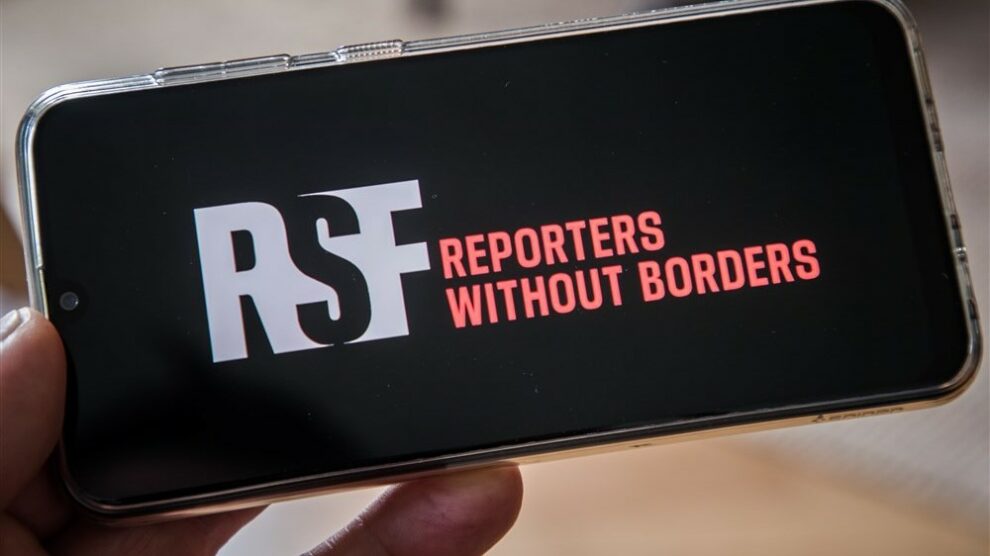Reporters Without Borders (RSF) has announced criminal charges against X (formerly Twitter) in France, marking a critical moment in the ongoing struggle between media watchdogs and social platforms. The charges stem from X’s alleged complicity in spreading a sophisticated Kremlin disinformation campaign that used the nonprofit’s identity to propagate false narratives about Ukraine.
At the heart of the controversy lies a fabricated video that masqueraded as BBC content, falsely claiming that RSF had conducted a study revealing widespread Nazi sympathies among Ukrainian soldiers. The viral deception, which garnered over half a million views by mid-September, represents a calculated attempt to legitimize Russia’s long-standing propaganda narrative that attempts to justify its invasion of Ukraine through false claims of Nazi influence.
The investigation by RSF revealed an intricate web of deception that began with a seemingly innocent account named “Patricia,” purportedly belonging to a French translator. However, deeper scrutiny uncovered that the account’s profile picture originated from a Russian website specializing in blonde women’s photos for avatar creation. Even X’s own AI chatbot, Grok, identified the account’s strong pro-Russia stance and consistent criticism of Ukraine and its European supporters.
The sophistication of the disinformation campaign became apparent as the fake content spread through a carefully orchestrated network of pro-Kremlin voices, including an Irish entrepreneur based in Russia, influential Telegram propagandists, and even Russian officials. RSF likened the process to information laundering, where false content was filtered through official channels to manufacture credibility before being reintroduced into public discourse.
Despite filing ten reports of illegal content through X’s reporting system, as required by the EU’s Digital Services Act (DSA), RSF’s attempts to have the defamatory content removed were met with rejection or requests for additional information that led nowhere. This systematic failure to address the spread of known false information has prompted RSF to pursue legal action as a last resort.
The timing of these charges gains additional significance in light of recent revelations about X’s connections to Russian interests. The U.S. Justice Department’s July announcement of the dismantling of a Russian propaganda network utilizing nearly 1,000 AI-generated accounts on X, coupled with The Wall Street Journal’s October report of multiple private calls between Elon Musk and Vladimir Putin, raises questions about the platform’s role in the spread of pro-Kremlin narratives.
Emmanuel Daoud, RSF’s attorney, emphasized the serious nature of the charges, stating that the legal proceedings aim to establish that social media companies and their executives can be held criminally responsible for knowingly providing tools and platforms for the dissemination of false information, identity theft, and defamation under the French Penal Code.
The case highlights the evolving challenges of combating sophisticated disinformation campaigns in the digital age. The fake video’s creation and distribution demonstrate how modern propaganda efforts combine technology, social media algorithms, and networks of influential accounts to create the appearance of legitimate news content.
RSF director of advocacy Antoine Bernard’s statement underscores the organization’s frustration with X’s apparent indifference to the spread of false information. The platform’s powerful arsenal of tools and ability to provide unparalleled visibility to those spreading falsehoods, while seemingly granting them impunity, has created what Bernard describes as a “Muskian network” that facilitates the proliferation of disinformation and war propaganda.
The legal action comes at a time when the international community is grappling with the devastating impact of the Russian invasion of Ukraine, which has reportedly claimed the lives of over a million Ukrainian people. The use of social media platforms to spread false narratives about the conflict adds another layer of complexity to an already tragic situation.
This case could set a significant precedent for how social media platforms are held accountable for their role in the spread of disinformation. The outcome may influence future policies and practices regarding content moderation, particularly in cases involving state-sponsored propaganda and false information campaigns.
As the legal proceedings unfold, the international community watches closely to see how this challenge to one of the world’s most influential social media platforms might reshape the landscape of digital communication and accountability. The case underscores the critical need for robust mechanisms to combat disinformation while protecting freedom of expression, a balance that has become increasingly crucial in our interconnected world.
The unprecedented legal action by RSF against X represents more than just a fight against a single instance of disinformation; it marks a decisive moment in the ongoing struggle to maintain truth and accountability in the digital age, where lies can indeed travel halfway around the world before the truth has a chance to surface.
















Add Comment